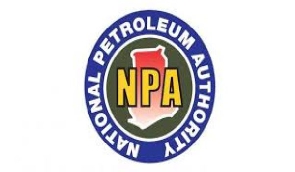The National Petroleum Authority (NPA) is confident of curbing losses of about US$200million per annum from illicit trade of petroleum products, following the launch of a Command Centre for Bulk Road Vehicles (BRVs) and Electronic Cargo Tracking Scheme.
Currently, about 98 percent of petroleum product transportation is by BRVs, but this mode of transportation is associated with several challenges including product shortages, smuggling, diversion and false haulage claims – leading to losses of about US$200million per year.
The petroleum downstream regulator is however confident of ousting these criminal practices through the new Command Centre for BRVs and the Electronic Cargo Tracking Scheme, launched by the Vice President, Dr. Mahamudu Bawumia yesterday in Accra.
Introduction of the two innovations aims to tighten controls in the supply chain and also provide a reliable platform for planned control measures at retail outlets. This will ensure maximum tax revenue mobilisation by the state.
The technology, developed by Ascent Solutions of Singapore, also provides real-time information about BVRs and their content.
“Government is concerned about the illicit activities going on in the petroleum downstream industry: mostly in the form of illegal bunkering, smuggling of petroleum products and dumping products meant for export on the local market,” Dr. Bawumia said.
Such illicit activities, according him, constitute an emerging threat that impacts negatively on the country’s maritime security as well as the nation’s efforts in mobilising tax revenue from the sale of petroleum products.
He added that the dynamics of illicit activities in the petroleum downstream industry require a multi-pronged solution to ensure sanity in the industry.
“I therefore charge the NPA to enhance and sustain already initiated technological interventions such the Petroleum Product Marking Scheme, the Bulk Road Vehicle Tracking and Volume Monitoring System, the Enterprise Relational Database Management System (ERDMS) and now the Electronic Sealing and Cargo Tracking System,” he indicated.
The Vice President also admonished NPA to enhance its collaborative activities with the National Security Council and Ghana Revenue Authority in finding a lasting solution to illicit activities in the petroleum downstream industry.
For his part, the Chief Executive Director of NPA, Alhassan Tampuli, said due to the absence of an effective tracking system in the past, transport service providers exploited the NPA’s lack of capacity to independently confirm the delivery of petroleum products to retail outlets – and thus subjected the UPPF (the Fund) Fund to abuse through presenting false claims for costs incurred in the transportation of petroleum products.
“It was common then for service providers to present freight claims for delivery of petroleum products to distant locations, in the northern parts of the country especially, while in actual fact the products were delivered here in Accra,” he lamented.
It is estimated that the revenue loss as a result of these fraudulent practices amounts to about 12.3% of annual freight paid.
For instance, in 2014 an estimated revenue of GH¢43million was lost, thereby threatening the Fund’s sustainability.
He also disclosed that the NPA, in the course of this year, will deploy Automatic Tank Gauging and Stock Management and Monitoring systems at retail outlets throughout the country.
This system will give the NPA and the GRA a real-time view of petroleum stocks at all retail outlets in the country.
“NPA is determined to curb illicit activities in the Petroleum Downstream Industry, and has been in collaboration with the National Security Council in the fight against illicit activities in the Petroleum Downstream Industry,” Mr. Tampuli further noted.
Business News of Thursday, 16 January 2020
Source: thebftonline.com
NPA moves to curb US$200m losses with digital cargo tracking scheme
Entertainment












